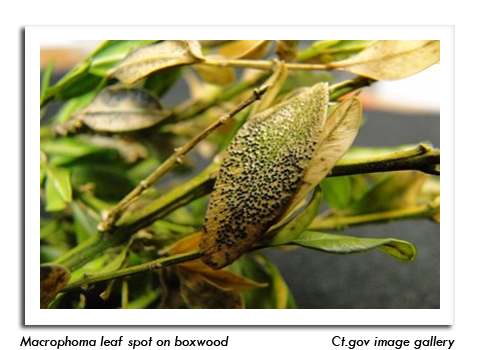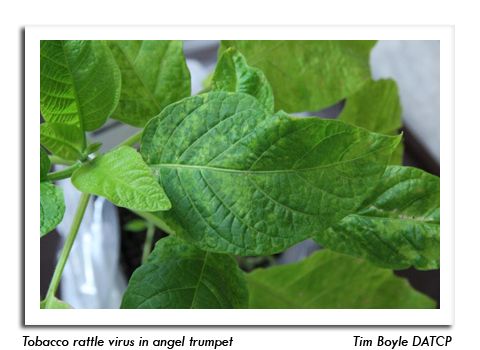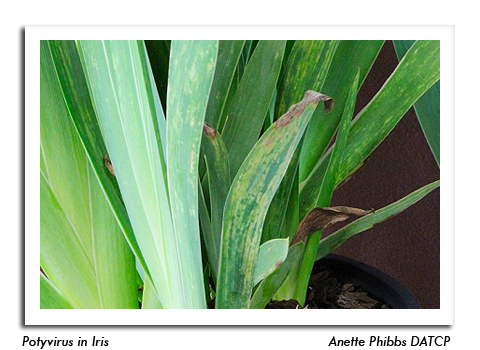
 |
|
|
Nursery & Forest
Volume 63 Number 3 Date 05/17/2018 MACROPHOMA LEAF SPOT - This weakly parasitic fungal disease was observed on boxwood "Green Velvet" in Kenosha County last week. Macrophoma leaf spot threatens poorly-maintained or infrequently-pruned boxwood plants, and like many fungi, thrives in the cool, dark interior of the plant. The most obvious symptoms are the many tiny black raised fruiting bodies found on dying or dead straw-colored leaves. The spreading fungus defoliates new growth, with the potential to kill entire branches within a few weeks. Control measures include pruning diseased branches at the first sign of infection and regularly cutting back healthy, heavily-leaved branches to increase ventilation and airflow into the shrub's interior. Annual pruning and immediate removal of any infected debris also helps prevent the disease. RHIZOCTONIA CROWN ROT - Nursery inspections found bacopa and Echinacea 'Pow Wow White' plants suffering from Rhizoctonia crown rot. The causal agent, Rhizoctonia solani, attacks hosts in the early stages of development, primarily affecting the roots and lower stems and causing various diseases such as collar rot, damping-off, and wire stem. Rhizoctonia produces sclerotia, which are durable, brownish-black structures that allow the fungus to survive for years in soil or infected plant tissue. Control can include fungicide drenches along with the following preventive cultural methods: using new containers or properly sanitizing reused containers, avoiding reuse of growing medium, removing diseased plants and plant residues from the growing area, minimizing plant stress and preventing injury entry points, watering in the morning to allow leaves and stems to dry before sunset, and increasing airflow and plant spacing to maintain humidity levels below 93% while growing plants at temperatures 70 °F or colder to discourage root-borne diseases. PLANT VIRUSES - Plant viruses continued to dominate nursery inspection reports across the state. Potyvirus was confirmed in several Iris and sedum varieties at locations in Jefferson, La Crosse, Rock, and Washington counties. Tobacco Rattle Virus (TRV) was diagnosed in angel's flower and bleeding heart in La Crosse, Racine, and Waukesha counties, while rose cardinal flower from a Washington County greenhouse tested positive for cucumber mosaic virus. Industry-wide attention to selecting and maintaining virus-free breeding stock, consumer education to recognize plant virus symptoms, and the prompt removal and proper disposal of infected plant materials are the best tools for reducing virus problems. -- Tim Boyle, DATCP Nursery Inspector 


|
|
|